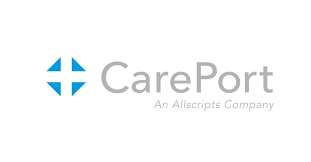Introduction
The landscape of healthcare is rapidly evolving, and effective coordination between acute and post-acute care facilities is more crucial than ever. CarePort Extended Care plays a pivotal role in ensuring seamless transitions for patients needing extended care services. This article delves into the importance of CarePort Extended Care, its benefits, real-world applications, challenges, and solutions.
Understanding CarePort Extended Care
CarePort Extended is a comprehensive care coordination platform designed to connect acute and post-acute healthcare providers. It facilitates real-time data exchange, enhancing patient outcomes through improved communication, streamlined discharge planning, and efficient care transitions.
Key Features of CarePort Extended Care
- Real-time Data Sharing – Ensures accurate patient information is available across care facilities.
- Discharge Planning Optimization – Enhances the discharge process by identifying appropriate post-acute care providers.
- Care Coordination Tools – Supports communication between hospitals, skilled nursing facilities, home health agencies, and other post-acute providers.
- Patient Tracking and Analytics – Monitors patient progress and improves decision-making through data-driven insights.
- Regulatory Compliance Support – Helps healthcare facilities comply with industry regulations and quality standards.
Importance and Benefits of CarePort Extended Care
The integration of CarePort Extended into healthcare systems offers significant advantages for patients, providers, and caregivers alike.
Improved Patient Outcomes
By ensuring smooth transitions between care settings, patients receive timely and appropriate care, reducing hospital readmissions and complications.
Enhanced Communication Between Providers
Healthcare professionals across different facilities can share patient records seamlessly, preventing information silos and reducing miscommunication errors.
Streamlined Discharge Processes
Hospitals can identify suitable post-acute care providers faster, enabling efficient patient transfers and minimizing delays in treatment.
Data-Driven Decision-Making
The platform provides analytics that help healthcare providers make informed decisions, improving overall care quality.
Compliance and Quality Assurance
By facilitating adherence to healthcare regulations, CarePort Extended Care ensures that facilities maintain high standards of patient care and safety.
Applications and Use Cases of CarePort Extended Care
Hospitals leverage CarePort Extended to transition patients efficiently from inpatient to post-acute settings, reducing length of stay and optimizing resource utilization.
Skilled Nursing Facilities (SNFs)
SNFs use the platform to receive accurate patient information, ensuring appropriate care plans are in place upon admission.
Home Health Agencies
Home healthcare providers benefit from real-time patient updates, enabling timely interventions and personalized care.
Payers and Insurance Providers
By tracking patient progress and analyzing outcomes, payers can ensure cost-effective care solutions while improving overall patient satisfaction.
Case Management and Social Work
Care coordinators use the platform to identify the best post-acute care options for patients, improving continuity of care and discharge efficiency.
Challenges and Solutions in Implementing CarePort Extended Care
Many healthcare organizations face difficulties integrating new technologies with their existing electronic health record (EHR) systems. Solution: Implementing interoperable solutions and standardized data-sharing protocols can overcome this issue.
Staff Adoption and Training
Healthcare professionals may resist adopting new platforms due to unfamiliarity. Solution: Comprehensive training programs and user-friendly interfaces can facilitate smoother adoption.
Regulatory and Compliance Hurdles
Compliance with healthcare regulations like HIPAA can be challenging. Solution: Extended Care is designed to alignwith industry regulations, ensuring data security and compliance.
Cost and Budget Constraints
Smaller healthcare providers may struggle with the costs associated with implementing new technologies. Solution: Leveraging government incentives and phased implementation strategies can make adoption more feasible.
Conclusion
CarePort Extended Care is a game-changer in the post-acute healthcare landscape, offering improved patient outcomes, streamlined discharge processes, and enhanced provider communication. By addressing common challenges and leveraging its robust features, healthcare organizations can significantly enhance their care coordination efforts.
For providers looking to enhance patient transitions and optimize post-acute care delivery, adopting CarePort Extended is a strategic investment in better healthcare outcomes.
Are you ready to revolutionize your healthcare coordination? Contact CarePort Care today to learn more about how this platform can transform your organization.



